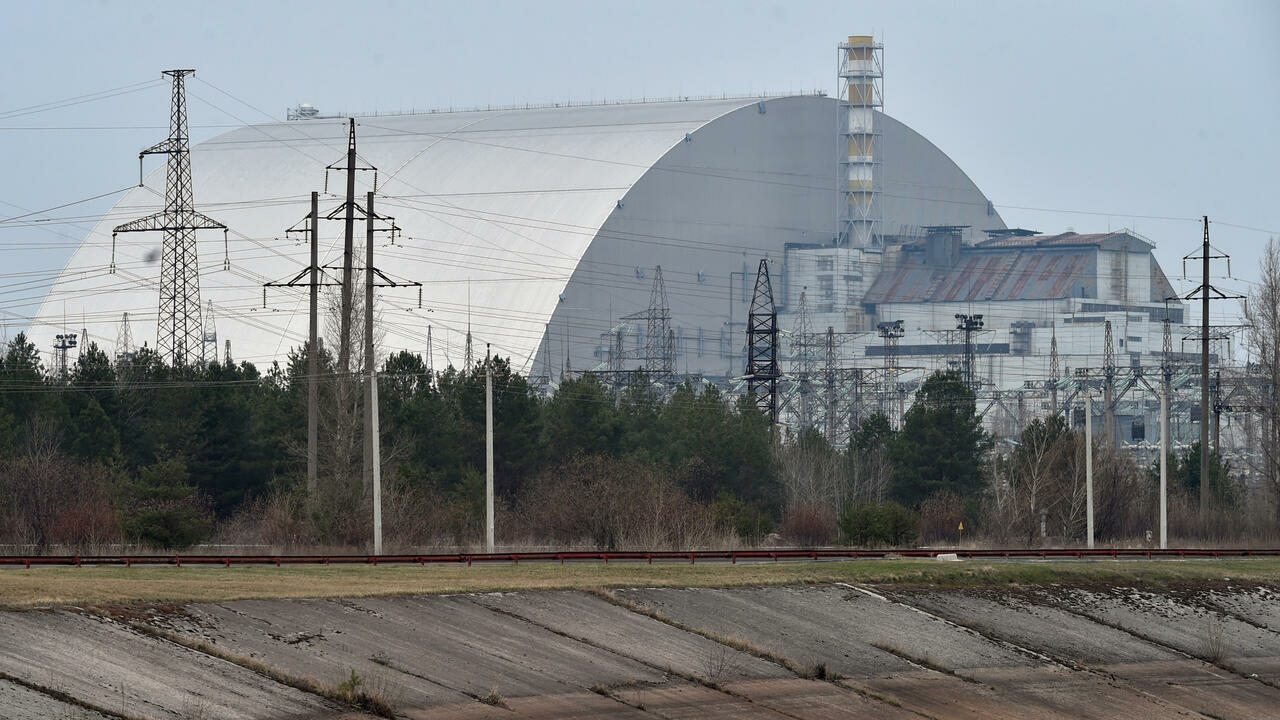Ukrainian authorities have informed the International Atomic Energy Agency (IAEA) that there is a danger of a radiation leak at the Chernobyl nuclear power station after electricity was cut off to the plant, but the UN nuclear watchdog says there is “no critical impact on security.”
Ukraine’s state-run nuclear company Energoatom announced on Wednesday that during fighting between Ukrainian troops and Russian forces, all the facilities at the Chernobyl exclusion zone had been completely disconnected and were now without electricity. It was impossible to restore the power lines because of continued fighting in the surrounding areas.
“Emergency diesel generators are switched on at the site to supply power to safety-critical systems. In case of trouble-free operation, the stock of diesel fuel on diesel generators will be enough for 48 hours,” Energoatom said in a post on the Telegram messaging app.
Ukrainian Foreign Minister Dmytro Kuleba also said that after the 48 hours were up, “cooling systems of the storage facility for spent nuclear fuel will stop, making radiation leaks imminent.”
“I call on the international community to urgently demand Russia to cease fire and allow repair units to restore power supply,” Kuleba said on Twitter.
Russian Deputy Defense Minister Nikolai Pankov claimed in a special briefing on Wednesday, “At the moment, the Ukrainian side is doing everything possible to avoid the organization of repair and restoration work.”
Pankov accused Ukrainian nationalist forces of attacking a substation and the power lines that supply electricity to the Chernobyl nuclear power plant, calling the move an “extremely dangerous provocation.”
Russian Deputy Minister of Energy Pavel Sorokin also indicated that Russia’s Belarusian colleagues had worked out a means to restore electricity supplies to the plant on a permanent basis by connecting it to the Belarusian energy system.
READ MORE: Concerned Nigerians call for the release of Zakzaky’s passport
However, the IAEA said there was enough water in the spent fuel pools for the fuel rods to cool sufficiently to avoid an accident.
IAEA chief Rafael Grossi said on Twitter that the “development violates (a) key safety pillar on ensuring uninterrupted power supply” but that “in this case, IAEA sees no critical impact on safety.”
#Ukraine has informed IAEA of power loss at #Chornobyl Nuclear Power Plant, @rafaelmgrossi says development violates key safety pillar on ensuring uninterrupted power supply; in this case, IAEA sees no critical impact on safety.
— IAEA – International Atomic Energy Agency (@iaeaorg) March 9, 2022
Earlier on March 3, the agency published a statement that said due to the amount of time since the Chernobyl disaster in 1986, the spent fuel had cooled down enough that “the pool is sufficient to maintain effective heat removal without the need for electrical supply.”
But it voiced concern that the site had stopped transmitting data on ambient radiation and other variables, and expressed concern for the staff who had not been able to change shifts. The situation for the staff was worsening, the IAEA said, citing the Ukrainian nuclear regulator.
Chernobyl is located about 100 km north of Kyiv, and 10 km from the Belarusian border. One of its reactors suffered a catastrophic meltdown in April 1986, forcing the evacuation of the surrounding areas and leading to the premature deaths of thousands of people.
The Chernobyl disaster is widely considered the worst nuclear disaster in history.
In a video shared on Telegram last week, Ukrainian President Volodymyr Zelensky urged world leaders and European citizens to do more to avoid a repeat of the Chernobyl nuclear disaster.
“I address all Ukrainians, all Europeans, everyone who knows the word Chernobyl, everyone who knows how many victims that explosion of a nuclear plant brought,” Zelensky said.













